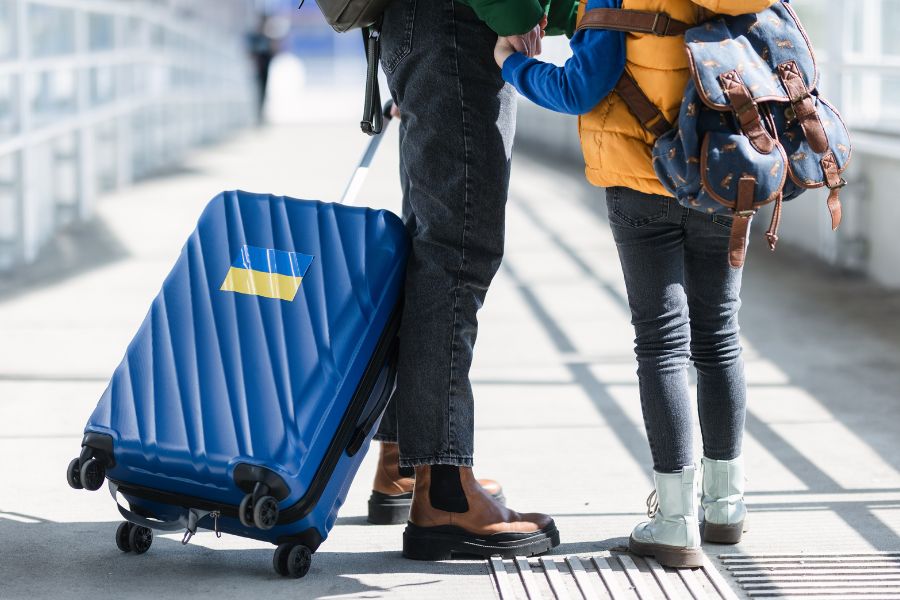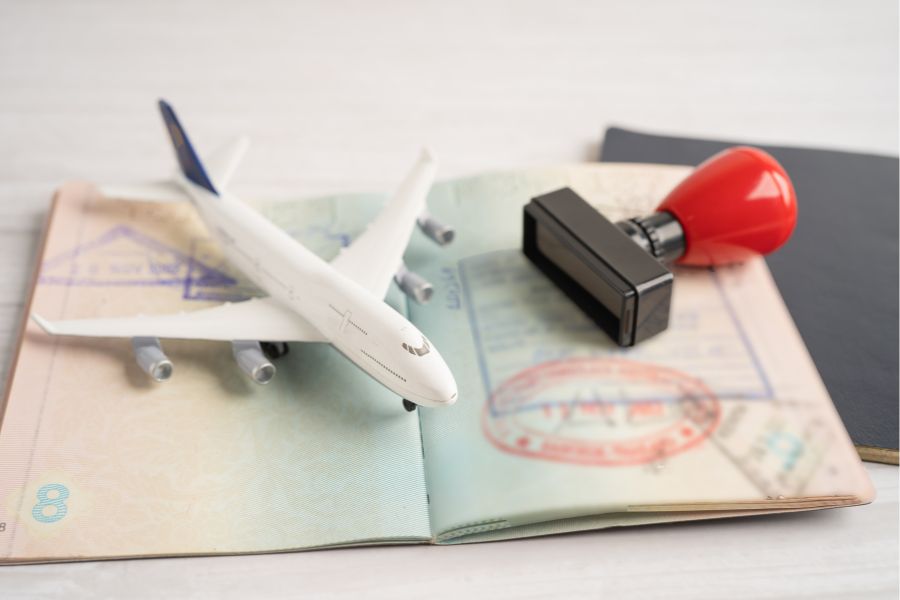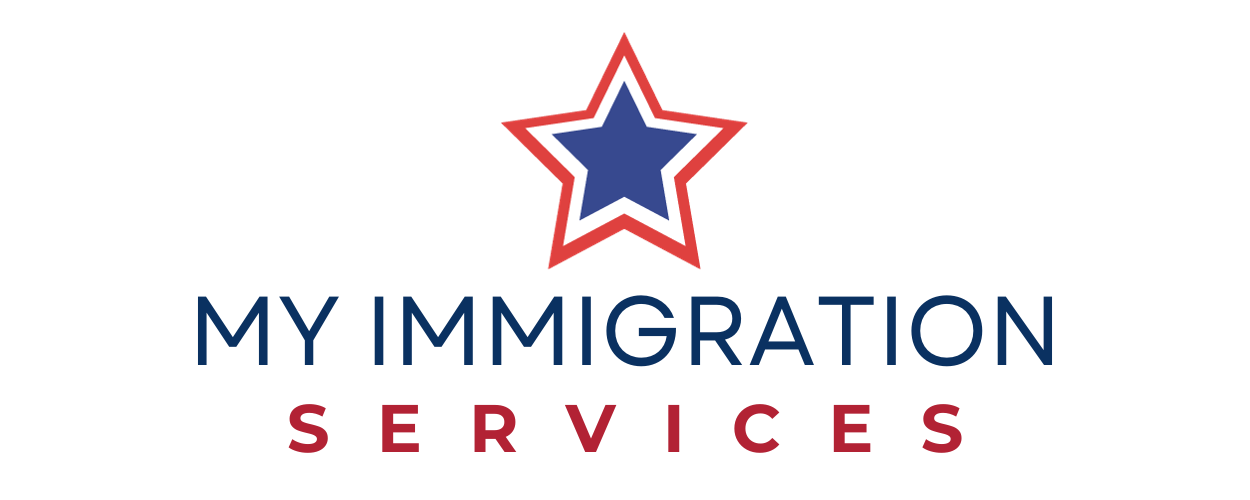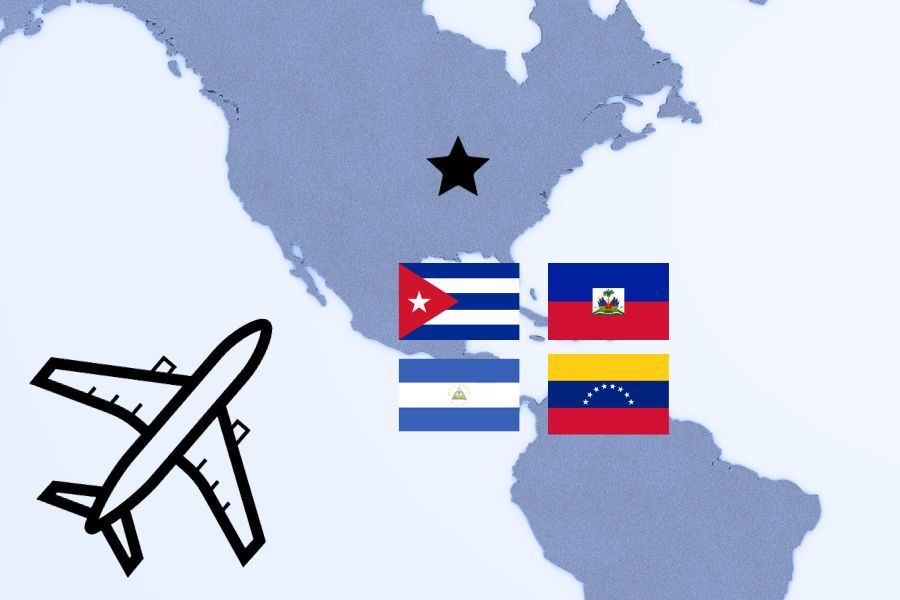Process for Cubans, Haitians, Nicaraguans, and Venezuelans Seeking Parole Explained
At the Mexico-U.S. border, a disheartening change has crushed the hopes of countless Cubans, Haitians, Nicaraguans, and Venezuelans seeking parole. Even when they arrive at a bridge or official Port of Entry, their pleas for refuge in the United States are met with a stark and unforgiving reality: denied entry and immediate deportation to Mexico.
However, a glimmer of opportunity emerges. The Department of Homeland Security (DHS) has introduced streamlined procedures for nationals of Cuba, Haiti, Nicaragua, and Venezuela, as well as their immediate family members, to safely request entry into the United States with advanced travel authorization and a temporary period of parole.
In this, we will delve deeper into the intricacies of this new process (which started in January 2023), shedding light on the path ahead for those seeking refuge in the land of opportunity.
How the new process works
The recently introduced (2023) Advance Travel Authorization (ATA) process gathers data from eligible noncitizens from Cuba, Haiti, Nicaragua, and Venezuela who are seeking advance permission to travel to the United States.
This authorization allows them to request a discretionary parole for urgent humanitarian reasons or significant public benefit, for up to two years.
- Eligibility and Supporter: To participate, eligible individuals must have a U.S.-based supporter willing to provide financial support throughout their stay in the U.S.
- Robust Security Vetting: Applicants will undergo thorough security screening to ensure they pose no threat.
- Meeting Eligibility Criteria: Beneficiaries must meet specific eligibility criteria (learn more below)
- Discretionary Approval: Each case is evaluated on a case-by-case basis, and approval is granted based on individual circumstances.
- U.S.-Based Supporter’s Role: The process begins with the U.S.-based supporter filing a Form I-134A, an online request to be a supporter and declaration of financial support, with USCIS for each beneficiary, including minor children. The U.S. government reviews the supporter’s ability to financially assist the beneficiaries they vouch for.
“Access to the processes is free. Neither the U.S.-based supporter nor the beneficiary is required to pay the U.S. government a fee to file the Form I-134A, be considered for travel authorization, or parole. Beware of any scams or potential exploitation by anyone who asks for money associated with participation in this process.” USCIS

Eligibility of Advance Travel Authorization for Beneficiaries & Sponsors
To be eligible for advanced authorization to travel to the United States and seek parole under these procedures, both beneficiaries and sponsors must meet specific criteria:
| Beneficiaries | 1. Be outside the United States 2. Be a national of Cuba, Haiti, Nicaragua, or Venezuela, or an immediate family member traveling with an eligible Cuban, Haitian, Nicaraguan, or Venezuelan 3. Hold an unexpired passport for international travel 4. Arrange their own commercial travel to a U.S. Port of Entry (POE) and final U.S. destination 5. Undergo and pass required national security and public safety vetting 6. Meet additional requirements, including vaccination and public health guidelines 7. Demonstrate parole is warranted due to significant public benefit or urgent humanitarian reasons, with favorable discretion. |
| Supporters | 1. Hold lawful status in the United States 2. Passed security and background vetting 3. Demonstrated sufficient financial resources 4. Commit to supporting the individual(s) during their stay in the United States Examples of individuals who meet the supporter requirement include: – U.S. citizens and nationals; – Lawful permanent residents, lawful temporary residents, and conditional permanent residents; – Nonimmigrants in lawful status (who maintain their nonimmigrant status and have not violated any terms or conditions); – Asylees, refugees, and parolees; – Individuals granted Temporary Protected Status (TPS); and – Beneficiaries of deferred action (including deferred action for childhood arrivals) or DED. |
Unaccompanied Children (Learn More)
Children under 18 arriving in the U.S. without their parent or legal guardian are not eligible for advance authorization to travel or parole consideration under the processes for Cubans, Haitians, Nicaraguans, and Venezuelans. In such cases, they may be placed in the custody of the Department of Health and Human Services (HHS) as required by law.
Pathway for Children Under Age 18 With Parents or Legal Guardians in the USA:
If children under 18 are coming to the U.S. to reunite with a parent or legal guardian who is already in the U.S. with lawful status, parolee status, or beneficiaries of deferred action or DED, they may follow a specific pathway for reunification. Here’s how:
1. Submit Form I-134A: The U.S.-based supporter (parent or legal guardian) should file Form I-134A, Online Request to be a Supporter and Declaration of Financial Support, on behalf of the child. This form includes information about both the supporter and the child.
2. Confirmation of Form I-134A: After USCIS confirms the Form I-134A, the supporter should follow these steps:
-
- Log in to their online account.
- Access the Inbox under the My Account drop-down menu.
- Click on the New Message button.
- In the subject, select “Other” and provide the Form I-134A receipt number.
- In the message field, indicate “CHNV Child Reunification” and state that they’re contacting USCIS on behalf of an eligible child under 18 for the Cubans, Haitians, Nicaraguans, or Venezuelans processes, who has a parent or legal guardian who can depart and reenter the U.S. to accompany the child in utilizing these processes.
3. Upload Supporting Documentation: Along with the message, the supporter should upload supporting documentation, including:
-
- Evidence of the parental relationship or legal guardianship.
- Documentation or authorization for the parent or legal guardian to reenter the U.S.
- A signed statement affirming their intent to accompany and provide care for the child in the U.S.
Supporters (Learn More)
Supporter Responsibilities:
- Receiving the beneficiary upon arrival
- Providing housing
- Assisting with paperwork (e.g., employment authorization, Social Security card)
- Ensuring healthcare
- Helping with education and employment
Filing Requirements:
- File Form I-134A for each beneficiary, including minor children.
- Multiple supporters can join together to support one beneficiary.
- Organizations, businesses, or entities can support beneficiaries through individual supporters filing on their behalf.
No Personal Financial Information Required:
- Individual supporters filing on behalf of organizations don’t need to submit personal financial information.
Resources for Support: Organizations like Welcome.us and the Community Sponsorship Hub offer information and resources to assist supporters and beneficiaries. DHS does not endorse these entities.
Reasons for Ineligibility
Ineligibility includes being a dual national or permanent resident in another country, unless DHS offers a similar parole process. Immediate family members traveling with eligible nationals are exempt.
Additionally, a potential beneficiary is ineligible for advance authorization and parole under these processes if they:
- Fail national security or public safety vetting or are deemed unfavorable in discretion.
- Have been removed from the U.S. within the past five years or face inadmissibility based on a prior removal order.
- Crossed irregularly into the U.S. between the POEs after the process announcement date (after Oct. 19, 2022, for Venezuelans; after Jan. 9, 2023, for Cubans, Haitians, and Nicaraguans), except for specific exceptions.
- Irregularly crossed the Mexican or Panamanian border after the process announcement date.
- Are Cuban or Haitian and were interdicted at sea after April 27, 2023.
- Are under 18 and not accompanied by a parent or legal guardian.
Important Note for Venezuelans: If your passport has received certified extensions of its validity by Venezuelan authorities, those extensions are considered valid. Some expired Venezuelan passports issued before June 7, 2019, may still be usable for up to five years beyond their printed expiration date if they have a “prórroga” status officially granted by authorities. However, passports issued after June 7, 2019, must be valid according to the expiration date printed in the passport itself, with no additional extensions or “prórroga” status applicable.

Step-By-Step Process Explained
Beneficiaries cannot directly initiate these processes themselves. Instead, a supporter residing in the United States must take the lead by completing and submitting Form I-134A to USCIS on behalf of each beneficiary, providing their information and contact details, such as email addresses. If USCIS deems Form I-134A sufficient, they will send the beneficiary details about the next steps to potentially obtain travel authorization to the United States and be considered for parole upon arrival at an airport of entry.
Upon receiving travel authorization, beneficiaries must make arrangements to fly directly to their ultimate U.S. destination. Upon arrival at an interior port of entry, Customs and Border Protection (CBP) will conduct inspections, including additional biometric vetting like fingerprinting, and decide on discretionary parole. Individuals attempting to enter the U.S. through land ports of entry will not be considered for parole through this process and will typically be denied entry.
Step 1: Financial Support
A U.S.-based supporter initiates the process by submitting ‘Form I-134A, Online Request to be a Supporter and Declaration of Financial Support‘, to USCIS via the myUSCIS web portal. The form is free to submit.
This form collects information about both the supporter and the beneficiary. A separate Form I-134A must be submitted for each beneficiary, including immediate family members and minor children. USCIS reviews supporters to ensure they can financially support the individuals they are sponsoring and to prevent exploitation and abuse. Supporters must be vetted and confirmed by USCIS before proceeding.
If the Form I-134A is Sufficient
1. USCIS reviews the form and supporting evidence.
2. Background checks are conducted on the supporter.
Then, the process continues on step 2.
If the Form I-134A is Insufficient
-
- USCIS will notify beneficiaries via email if the form is deemed insufficient.
- This decision is final, and the beneficiary won’t be considered for parole.
- Supporters can file a new Form I-134A for the same or another beneficiary, or a different supporter can file on their behalf.
Step 2: Biographic Information Confirmation
Upon USCIS confirmation of a supporter, the beneficiary will receive an email with instructions on creating a USCIS online account and next steps. Beneficiaries must verify their biographic details in their online accounts and confirm eligibility requirements:
- They are not a permanent resident or dual national of any other country.
- They are traveling with an eligible national as a spouse, common-law partner, or unmarried child under 21.
- They understand the family relationship requirements for children under 18.
- They have completed vaccine requirements or are eligible for exceptions.
Step 3: Submission via CBP One Mobile Application
After verifying biographic information and meeting eligibility criteria in their online accounts, beneficiaries will receive instructions via myUSCIS on accessing the CBP One mobile application. Here, they must enter their biographic data and provide a photograph.
Step 4: Advance Travel Authorization to the United States
Following completion of Step 3, beneficiaries will receive notice in their online accounts confirming whether CBP, at its discretion, grants them advance authorization to travel to the United States for potential discretionary parole consideration on a case-by-case basis. If approved, this authorization is valid for 90 days, and beneficiaries are responsible for their own air travel to the U.S. However, approval does not guarantee entry or parole into the United States; it depends on CBP’s findings regarding urgent humanitarian reasons or significant public benefit.
Step 5: Seeking Parole at the Port of Entry
Upon arrival at a port of entry, CBP will inspect beneficiaries and determine parole eligibility on a case-by-case basis. This inspection includes additional screening and vetting, including fingerprint biometric checks. Individuals deemed a national security or public safety threat or otherwise unsuitable for parole may follow a different processing pathway, potentially involving U.S. Immigration and Customs Enforcement (ICE).
Step 6: Parole
Individuals granted parole under these processes typically receive parole status for up to two years, subject to health and vetting requirements. They may also apply for employment authorization under existing regulations by filing Form I-765, Application for Employment Authorization, either online or via mail through USCIS.
Additionally: After arriving in the U.S., beneficiaries must undergo a tuberculosis medical screening within 90 days.

After Being Paroled into the United States
1. Applying for Employment Authorization:
- Once you’re paroled in the U.S., you can apply for employment authorization through USCIS.
- Use Form I-765, Application for Employment Authorization, with the (c)(11) category code and the required fee. Alternatively, apply for a fee waiver.
- Eligible applicants file Form I-765 online via their USCIS online account at my.uscis.gov.
- If you’re requesting a fee waiver, submit Form I-765 by mail along with Form I-912, Request for Fee Waiver.
2. Obtaining a Social Security Number and Card:
- We recommend applying for a Social Security number (SSN) using Form I-765, Application for Employment Authorization, following the form instructions.
- If you request an SSN in Part 2 of Form I-765 and it’s approved, USCIS will transmit your data to the Social Security Administration (SSA).
- SSA will assign you an SSN and mail you a Social Security card to the provided address. SSNs are typically issued to those authorized to work in the U.S. and are used for reporting wages and determining Social Security benefits eligibility.
- If you don’t request an SSN on Form I-765, you can apply for one after receiving your EAD from USCIS. Follow the instructions on SSA’s Social Security Number and Card webpage.
3. Address Updates:
- If you stay in the U.S. for over 30 days, you must report your U.S. address.
- Notify USCIS of address changes within 10 days through either:
- The online change of address form.
- Your existing USCIS online account, if you have one.
- Ensure to include the receipt number for any pending USCIS applications, petitions, or requests related to your address change. USCIS will mail important documents to the address on file.
4. Terminating Your Parole:
- Parole will automatically end if you leave the U.S. without an Advance Parole Document or when your parole period expires.
- DHS may also choose to terminate your parole for various reasons, such as violating U.S. laws. Departing the U.S. when your parole ends is expected. Staying after parole expiration may lead to referral to U.S. Immigration and Customs Enforcement (ICE) for immigration proceedings.
5. Leaving the United States:
- If granted travel authorization, it’s valid for a single entry to the U.S. to seek parole.
- To leave the U.S. and return as a parolee, request an Advance Parole Document by filing Form I-131, Application for Travel Document, before departing.
- Leaving the U.S. without an Advance Parole Document will terminate your parole. Find instructions on how to apply for an Advance Parole Document while in the U.S. on the Form I-131 page.
FAQs about Advanced Parole
Advance parole is granted for up to two years.
After the two-year parole period ends, various lawful immigration pathways, including extensions of parole, visas, asylum, and Temporary Protected Status (TPS), may be available to certain parolees.
The U.S. government will provide travel authorization for up to 30,000 individuals per month across the Cuban, Haitian, Nicaraguan, and Venezuelan parole processes. There is no limit on the overall number of beneficiaries.
No, there is no fee for filing Form I-134A, and neither supporters nor beneficiaries should be charged for this request.
Form I-134A is the updated online version used for processes such as Cubans, Haitians, Nicaraguans, and Venezuelans. Form I-134 was used for other types of beneficiaries. You should use Form I-134A if supporting beneficiaries under the new processes.
No, if you submitted Form I-134 online before Jan. 6, 2023, it will continue to be processed.
Processing times vary, but up to 30,000 individuals can receive travel authorization each month. USCIS and CBP are working to process cases efficiently.
No, you must have lawful status or be a parolee, recipient of deferred action, or DED beneficiary to become a supporter.
No, beneficiaries must be outside the United States when Form I-134A is filed.
No, having a Temporary Protection Permit in another country doesn’t disqualify you from this process.
No, beneficiaries are not required to live with their supporters. However, supporters provide various forms of assistance, including financial support.
Yes, eligible children under 18 and immediate family members with dual citizenship can be considered for parole under these processes.
In summary, these new advance parole processes provide a safe way for individuals from Cuba, Haiti, Nicaragua, and Venezuela to seek parole in the United States for humanitarian reasons or significant public benefit. However, a financial supporter is a must.
Immigrating to USA? You may want to consider moving to one of the sanctuary states.

Reference:
Our aim was to present the process of parole for Cubans, Haitians, Nicaraguans, and Venezuelans in a more digestible and reader-friendly format. We obtained and analyzed all of this information directly from this USCIS resource.




